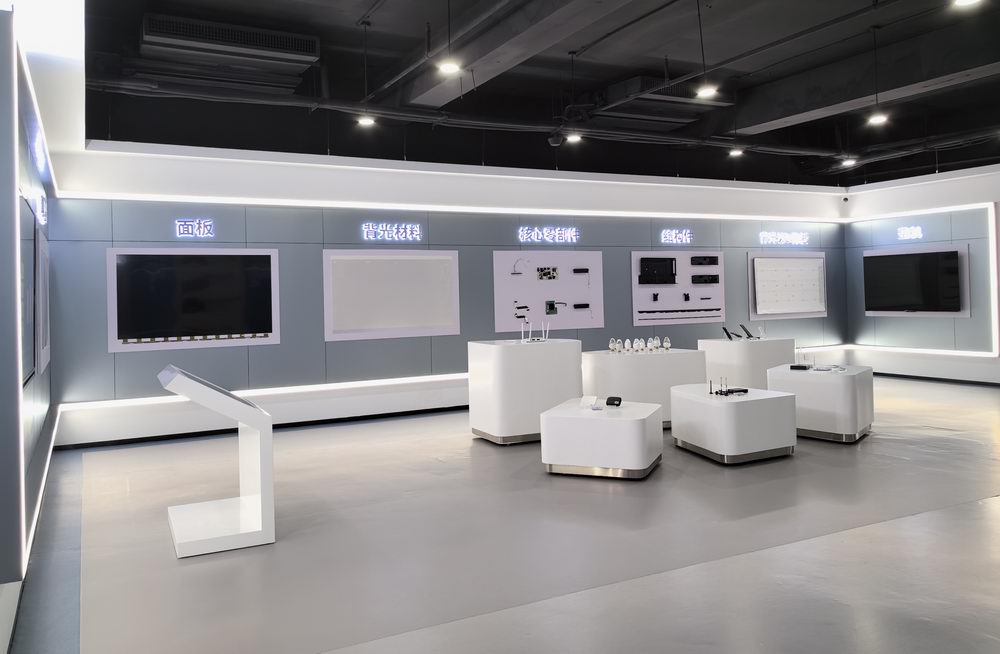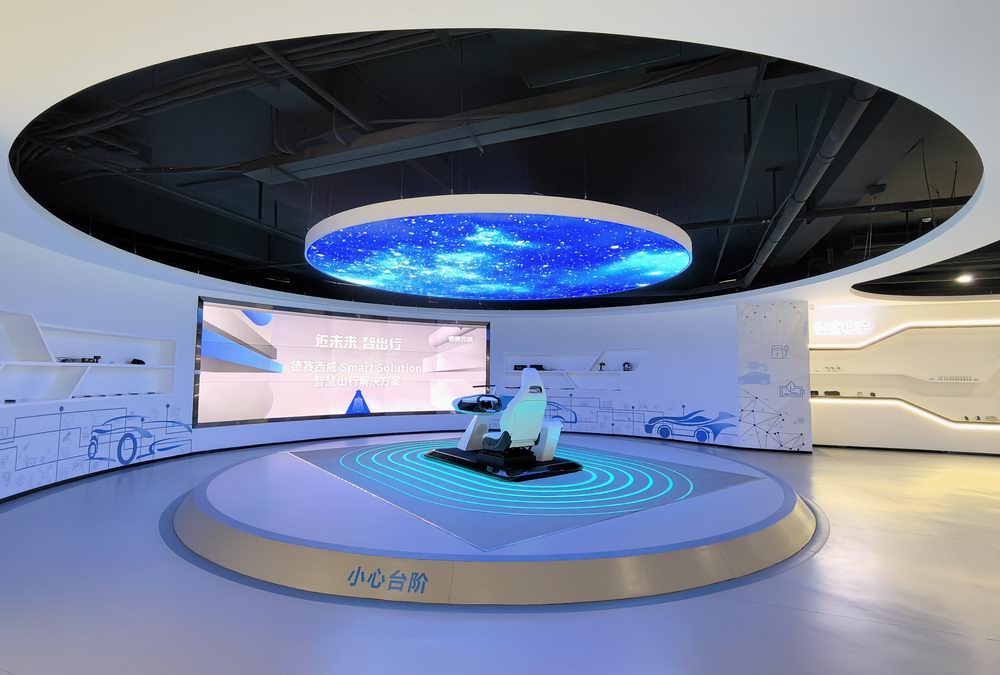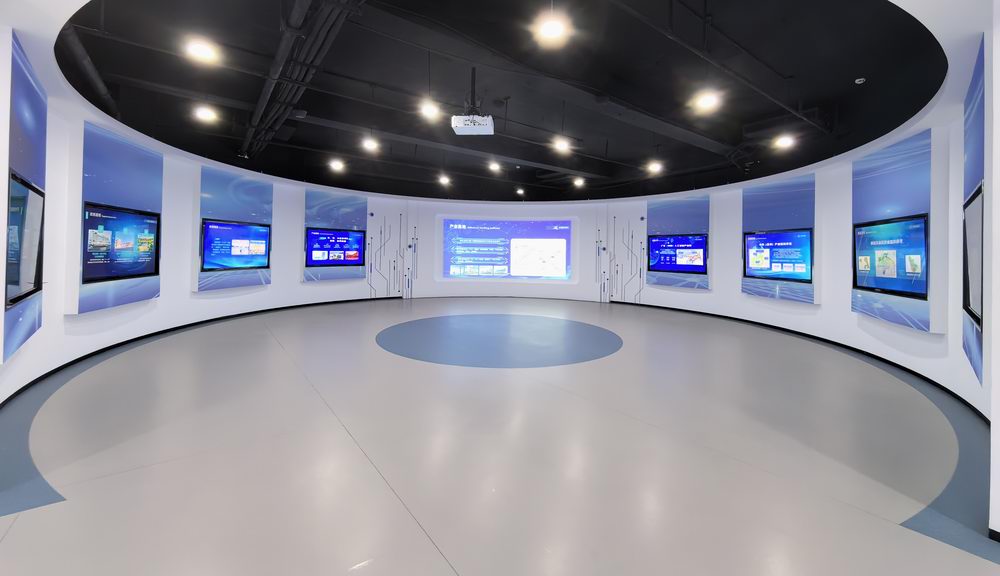Lessons from Coca-Cola's Success in the Chinese Market

Coca-Cola has achieved significant success in China, securing over 50% of the beverage market by 2002. This achievement was not instantaneous. Coca-Cola's strategies in China provide essential lessons for businesses seeking to succeed in this expansive market. The company's approach involves localization and strategic partnerships, with the Zhongkai High-tech Zone being a key player in this process. Additionally, the National Foreign Trade Transformation and Upgrading Base aids enterprises, fostering growth and innovation. Grasping these strategies can offer a blueprint for success.
Historical Context of Coca-Cola in China
Entry into the Chinese Market
Initial Challenges and Opportunities
Coca-Cola faced many hurdles when entering China. The company encountered restrictions on selling to tourists and dealt with illegal promotions. Building production facilities became a necessity. Coca-Cola persisted, though, and established joint ventures. Recognizing China's potential in 1978, Coca-Cola became the first international company to re-enter post-Mao China. This move opened doors for connections with local scientists and nutritionists.
Early Marketing Efforts
Coca-Cola's early marketing efforts focused on understanding local tastes. The company worked closely with the Chinese government to align with public health policies. Coca-Cola's influence extended to directing research and maintaining a strong market position. These efforts helped the brand adapt to consumer preferences and pricing challenges.
Establishing Market Leadership
Expansion Strategies
Coca-Cola's expansion strategies in China involved localization. The company built bottling plants and formed joint ventures. Cooperation with local companies and the government played a crucial role. Coca-Cola's strategy included adapting to market policies and preferences. This approach allowed the brand to grow rapidly and retain its reputation.
Adaptation to Local Preferences
Coca-Cola understood the importance of adapting to local tastes. The brand adjusted its products to suit Chinese consumers. Coca-Cola's localization strategy included packaging changes and product differentiation. These efforts ensured that the brand resonated with the local market. Coca-Cola's success in China symbolizes the potential of foreign brands in the country.
Strategic Marketing Efforts

Cooperation with the Beijing Olympics
Olympic-themed Campaigns
Coca-Cola took a big step by partnering with the Beijing Olympics. The company launched Olympic-themed campaigns that captured the spirit of the games. These campaigns included special edition packaging and engaging advertisements. Coca-Cola's creative approach connected the brand with the excitement of the Olympics. The campaigns celebrated athletic achievements and cultural pride.
Impact on Brand Visibility
The Olympic partnership boosted Coca-Cola's brand visibility in China. The association with such a prestigious event enhanced the company's image. Coca-Cola reached a vast audience through these efforts. The brand became synonymous with celebration and unity. This strategic move strengthened Coca-Cola's market position and increased consumer recognition.
Emotional Branding Campaigns
Personalized Bottles Initiative
Coca-Cola introduced the personalized bottles initiative to create emotional connections. The company printed popular names and phrases on bottles. Consumers loved finding their names or messages on products. This initiative encouraged people to share their experiences on social media. Coca-Cola turned a simple product into a personal and shareable moment.
Storytelling and Consumer Engagement
Coca-Cola used storytelling to engage consumers on a deeper level. The brand shared stories that resonated with local culture and values. Advertisements featured relatable characters and scenarios. Coca-Cola's storytelling approach made the brand feel more personal and authentic. This strategy fostered a sense of belonging and loyalty among consumers.
Case Studies:
Coca-Cola's Localized Marketing Strategy in China: Increased market position through Olympic-themed campaigns.
Coca-Cola's Worldwide Olympic Partnership: Long-term partnership with the Olympic Games enhanced global presence.
Coca-Cola's Entry and Growth Strategies in China: Success through localization and emotional branding.
The Zhongkai High-tech Zone National Foreign Trade Transformation and Upgrading Base played a supportive role. The electronic information cloud platform assisted enterprises in the zone. Businesses benefited from technological advancements and resources. This support helped companies grow and innovate, contributing to Coca-Cola's success in China.
Building Emotional Connections

Creating a Cultural Bond
Localized Advertising
Coca-Cola knows how to speak the language of its audience. In China, the company uses localized advertising to connect with the people. Ads feature familiar faces and local celebrities. The brand taps into cultural events and traditions. This approach makes Coca-Cola feel like a part of everyday life in China. The result? A stronger bond with consumers who see Coca-Cola as more than just a drink.
Community Involvement
Community involvement plays a big role in Coca-Cola's strategy. The company invests in local projects and initiatives. Coca-Cola supports educational programs and environmental causes. These efforts show that Coca-Cola cares about more than profits. The company builds trust and loyalty by giving back to the community. People appreciate a brand that contributes to their well-being.
Enhancing Brand Loyalty
Customer Experience Innovations
Coca-Cola constantly looks for ways to improve the customer experience. The company introduces new flavors and packaging designs. Coca-Cola experiments with interactive vending machines and digital platforms. These innovations keep consumers engaged and excited. A fresh and dynamic experience encourages repeat purchases. Coca-Cola stays ahead by anticipating consumer needs and preferences.
Loyalty Programs and Promotions
Loyalty programs and promotions help Coca-Cola maintain a strong customer base. The company offers rewards and incentives for frequent buyers. Promotions include discounts, exclusive products, and special events. Coca-Cola creates a sense of belonging among its customers. People love feeling valued and appreciated. A well-executed loyalty program turns casual buyers into lifelong fans.
The Zhongkai High-tech Zone National Foreign Trade Transformation and Upgrading Base plays a crucial role in supporting enterprises. The electronic information cloud platform provides resources and technological advancements. Businesses benefit from this support and grow within the zone. Coca-Cola's success in China reflects the importance of building emotional connections and leveraging local resources.
Integration with National Initiatives
National Foreign Trade Transformation and Upgrading Base
Coca-Cola's Role and Contributions
Coca-Cola has played a vital role in the National Foreign Trade Transformation and Upgrading Base. The company has invested heavily in local projects, focusing on reshaping bottling operations and expanding beverage offerings. Coca-Cola's collaboration with the Chinese government has strengthened its presence, aligning with national goals. This partnership has allowed Coca-Cola to influence health policies through connections with the International Life Sciences Institute.
Impact on Local Economy
The impact on the local economy has been significant. Coca-Cola's investments have created jobs and boosted economic growth. The company's focus on localizing operations has led to increased production and distribution efficiency. Coca-Cola's involvement in the National Foreign Trade Transformation and Upgrading Base has fostered innovation and development, benefiting both the company and the community.
Zhongkai High-tech Zone
Technological Advancements
The Zhongkai High-tech Zone has become a hub for technological advancements. The Electronic Information Cloud Platform provides essential support to enterprises within the zone. Companies benefit from cutting-edge technology and resources that drive growth and innovation. Coca-Cola has utilized these advancements to enhance its operations and product offerings.
Collaboration with Local Enterprises
Collaboration with local enterprises has been a key factor in the success of the Zhongkai High-tech Zone. Coca-Cola works closely with local businesses to adapt strategies and meet consumer needs. This cooperation fosters a sense of community and shared goals. The support from the National Foreign Trade Transformation and Upgrading Base ensures that enterprises have the tools and resources needed to thrive.
The Zhongkai High-tech Zone and the National Foreign Trade Transformation and Upgrading Base play crucial roles in supporting enterprises. The Electronic Information Cloud Platform offers valuable resources that assist in the development and growth of businesses like Coca-Cola. This collaborative environment encourages innovation and success in the Chinese market.
Coca-Cola's success in China highlights several key strategies. The company embraced localization, adapting products and marketing to fit Chinese culture. This approach helped Coca-Cola capture the largest market share. Strategic partnerships, like those with the Zhongkai High-tech Zone, provided technological support and innovation. The National Foreign Trade Transformation and Upgrading Base offered essential resources, boosting growth. Other brands can learn from Coca-Cola by focusing on cultural connections and leveraging local platforms. These strategies create strong consumer bonds and drive success in the Chinese market.
See Also
Innovative Growth Strategies at Huizhou Zhongkai
Smart Investment Opportunities in Huizhou Zhongkai
Driving Innovation in Industries: Huizhou Zhongkai's Impact
Transforming the Electronic Information Sector: Zhongkai High-tech Zone's Triumph
Zhongkai High tech Zone National foreign trade transformation and Upgradi Base(Electronic Information)Cloud Platform.
Address: Zhongkai High-tech Zone,Huizhou City ,Guangdong,China
E-mail: huizhoueii@163.com 13510001271@163.com
Tel: +86-0752-3279220 Mobile: +86-13510001271


